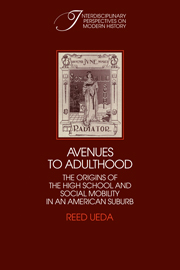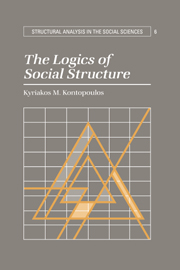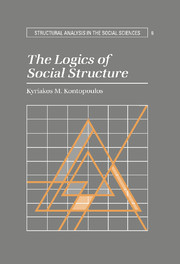Avenues to Adulthood
American educators have hailed the public high school as the ultimate guarantor of equal opportunity in a modern educational system. Avenues to Adulthood assesses how the high school played this role. Professor Ueda's book discusses the reasons for the modernisation of the high school at the turn of the twentieth century, the kinds of opportunities the high school offered and the way in which it became a focus of civic life that reshaped the American sense of community and generation. To the extent that a small share of poor immigrant children gained access to the high school and received its advantages, that institution counteracted the disadvantages of inherited social status. Academics, interscholastic sports and journalism turned the high school into a focal point of civic pride. Ultimately by supplying educational advantages that affected adult career patterns, the high school was a powerful force in reshuffling the social elites of the early twentieth-century city.
Product details
January 2009Paperback
9780521100687
320 pages
229 × 152 × 18 mm
0.47kg
Available
Table of Contents
- Introduction
- 1. Farm village to commuter suburb
- 2. The evolution of educational leadership
- 3. The free high school
- 4. The rise of Yankee city and the prolongation of schooling
- 5. Popularising high school: 'the college of the people'
- 6. The origins of high school youth culture
- 7. Educational opportunity and social mobility
- 8. The birth of progressive reform and the junior high school
- Conclusion
- Appendices
- Notes
- Index.




